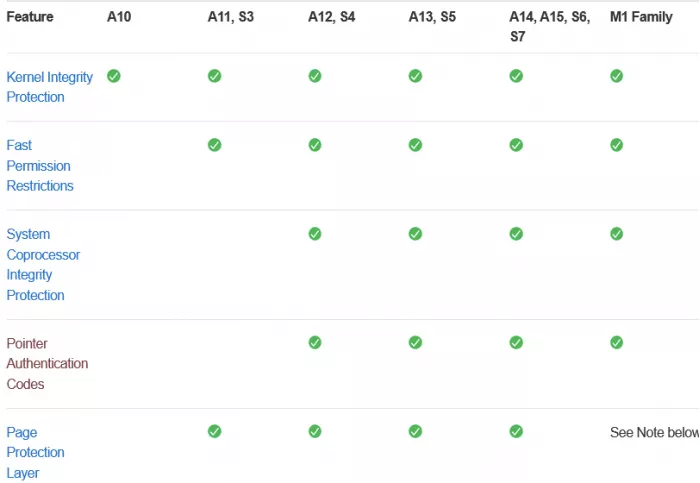MIT researchers have found that Apple's M1 chip has an "irreparable" hardware vulnerability that may allow attackers to break through its last line of security. The vulnerability lies in a hardware level security mechanism used in Apple M1 chip, which is called pointer authentication code, or PAC. This feature makes it more difficult for attackers to inject malicious code into the memory of the device, and provides a level of defense against buffer overflow vulnerabilities, which force memory data to overflow to other locations on the chip.

However, researchers from the MIT Computer Science and artificial intelligence laboratory have created a novel hardware attack that combines memory corruption and speculative execution attacks to circumvent security functions. This attack shows that the pointer verification mechanism can be penetrated without leaving any trace. What's worse, because it utilizes the hardware mechanism, there is no software patch to fix it.
This attack is appropriately called "Pacman", which means that it works through the "guess" pointer authentication code (PAC), which is an encrypted signature that can confirm that an application has not been maliciously changed. This is to use speculative execution to complete the leakage PAC verification results. Speculative execution is a technology used by modern computer processors to speed up performance by speculating and guessing various calculation lines. The hardware side channel is used to display whether the guess is correct.
More importantly, since there are only so many possible values of PAC, researchers found it possible to try them all to find the correct value.
In a proof of concept, the researchers proved that this attack can even deal with the kernel, that is, the software core of the device operating system, which "has a great impact on the future security of all arm systems with pointer authentication enabled", said Joseph ravichandran, a doctoral student of MIT CSAIL and co-author of the research paper.
Ravichandran added: "the idea behind pointer authentication is that if everything else fails, you can still rely on it to prevent attackers from gaining control of your system. We have shown that pointer authentication as the last line of defense is not as absolute as we once thought."
So far, Apple Pointer authentication has been implemented on all its customized arm based chips, including M1, M1 pro and M1 max. some other chip manufacturers, including Qualcomm and Samsung, have announced or expect to launch new processors that support hardware level security functions. MIT said it had not tested the attack on Apple's unreleased M2 chip, which also supports pointer authentication.
MIT said in its Research Report: "if not mitigated, our attacks will affect most mobile devices, and may even affect desktop devices in the next few years."
The researchers submitted their findings to apple and mentioned that the pac man attack is not a "magic bypass" to all the security on the M1 chip, and can only take the existing errors protected by pointer authentication. Apple did not comment.
Last May, a developer discovered an irreparable flaw in Apple's M1 chip, which created a hidden channel for two or more installed malicious applications to transmit information to each other. But the flaw was ultimately considered "harmless" because malware could not use it to steal or interfere with data on the Mac.